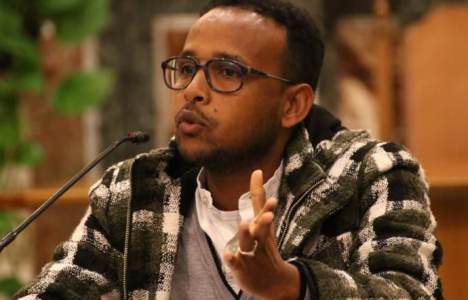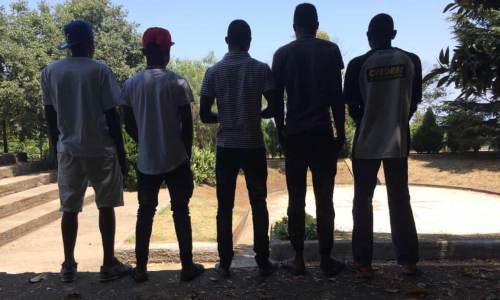The Endless Waiting
Finally after a year and three months of waiting endlessly, in these days a few guests from the SPRAR* centres in Piana del Belice, run by the Quadrifoglio Cooperative, undergo their fateful interview in front of the territorial sub-commission at the prefecture of Agrigento, which is going to accept or refuse their asylum request.
Even though the auditions had been scheduled for 9 o’clock in the morning, several structural delays made some young men wait for hours before they could proceed to their interview. Up to now the Agrigento commission has 1500 pending asylum-requests to examine. Since its foundation in May it has been examining only 60. When we add those recently arrived and the people with higher priority – refugees that are in aparticularly vulnerable state – it becomes clear that the waiting times become longer and longer.
How to face such a situation made up of uncertainty and pain? Some people find a way to release tension and achieve their mental and psychological saneness through music, for instance, like in the case of a Ghanese boy. Transforming his frustration into songs helps processing or, at least, working it out. But those people who do not have that artistic gift “do not even have the desire to smile” and let themselves be sucked by frustration and an unbearable sense of impotence.
At least they have a their date for the appointment: others, too many, still long for the date of their interview as if it were their only reason to live, not knowing that, for a lot of them, that day will only be the starting point of a long judicial process.
Meanwhile, in the streets, at bars, at restaurants you hear people speaking about the immigration issues. Especially tourists inquire into this omnipresent matter, and ask residents. Referring to a talk between a foreign tourist and a “Girgentan” (inhabitant of Agrigento), the conversation resulted into the repetition of common places, stereotypes and wrong information, highlightening the paradox of the whole conversation. In fact, according to the resident, who claimed “not to be racist, but…”, those people who have a rent to pay are somehow obliged to work and earn their wages. The others, those who live in the Asylum Centres, go through it well enough in Italy, after all: “The state gives them 70€ a day, up to 110€ for minors”; then they do not need to work, so that they can loiter about the town the whole day. Not to talk of the hint at “their” suspicious tours (though it was not clear who were “they”exactly) ending, in purpose, with the question: “You still take the underground in Milan?” Me? Yes, I do, at midnight too, and alone, without any trouble. This whole discourse about (un)safety – we are too used to listen to it on TV or by politicians. But these powers are the two aspects of the same question. Yet Italy has not recovered from the news that the rapist of the teenager in Rome was an Italian soldier and not “those violent migrants”. So, the question is: “When exactly in the process of building our identity vs. their identity, the good people and the bad people, the wealthy people and the needy people, nationality took over so as to become more interesting, more important, more regarded than the first?
As a matter of fact, this one seems to be the great dilemma of our century: first of all to frame each person geografically, maybe even before judging by his/her skin colour, in order to define his value and alleged threat. A forced sorting of migrants, deciding who migrates for need, or for joining family, or for life danger and so on – is a gamble. Sometimes I wonder how the world would run if we stopped to try framing things forcedly, and accept that certain phenomena, concepts, ideals, theories etc. are fluid, pervious, uncontrollable. Migration is like flowing water: by means of equipments, or studied devices you can limit the flow but you cannot stop it once and for all. Water will always find the way to surmount barriers, passing through small crevices or digging other openings with patience and constancy. The same thing goes for migration. You can build walls, militarize borders, adopt rigid laws: but you cannot stop human being from moving!
Caterina Bottinelli
**SPRAR – Sistema di protezione per rifugiati e richiedenti asilo: protection facilities for asylum seekers and refugees
Translated by Fernanda Pecile


